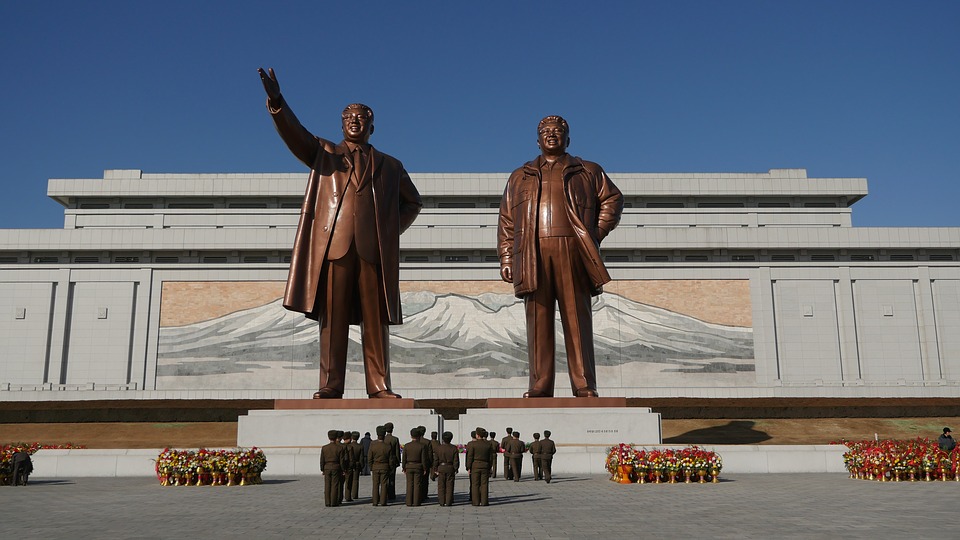
Struggling under the weight of communism, North Korea is increasingly known as a land of poverty and hardship, ranked last among nations when it comes to economic freedom and religious liberty.
What’s less discussed, however, is the importance of each of those features, taken together. Economic and religious life are closely connected, making the preservation of both absolutely essential if society is to flourish.
In a new short film from Voice of the Martyrs, we get a small glimpse of this reality through the story of Pastor Han Chung Ryeol, a Chinese missionary who shared the Gospel with at least 1,000 North Koreans before being assassinated by their government. Watch below:
The story is told from the perspective of Sang-chul, one of Pastor Han’s North Korean disciples, who first got to know the pastor through a series of economic exchanges, which soon grew into a years-long relationship.
Due to the lack of food and work in North Korea, Sang-chul had begun to seek opportunity elsewhere—sneaking across the Chinese border to sell mushrooms that he would harvest along the way. During one such journey, he encountered a man (later identified as Pastor Han) who offered to help sell his mushrooms for a fair price in nearby Chinese cities.
Sang-chul was perplexed that the man would help him in such way—risking severe government penalties for no personal economic gain. Nevertheless, the partnership continued, prompting Sang-chul to eventually ask the man about his motives.
“I asked why he would do this, for he himself was in great danger for assisting a North Korean.” explains Sang-chul. “‘It is because I’m a Christian,’ [Pastor Han] said. I was afraid.”
Sang-chul knew that such an admission could easily lead to imprisonment in a concentration camp. Further, he had been taught that Christian missionaries were dangerous and capable of great violence. Yet Pastor Han’s economic witness resembled something far different from the government’s caricatures. He set an example of generosity, sacrifice, and love. Throughout their mundane interactions, Pastor Han had offered him hope, and Sang-chul wanted to learn more, regardless of the potential consequences. He would eventually give his life to Christ.
Years later, he heard of Pastor Han’s assassination, but it would not deter him in sharing his faith. “Pastor Han gave his life, but he gave hope to me and to many other North Koreans,” Sang-chul says. “Despite the ever present danger, many of us will continue to share the message that God is real.”
It’s a compelling story for a number of reasons, and it’s sure to inspire compassion, prayer, and reflection around persecuted peoples around the world. As one area of reflection, it’s worth returning to that original topic of economic freedom and religious liberty, taken together.
In the case of Sang-chul, economic exchange served as the initial risk of government retribution, but it also served as the context for evangelism. Trust was developed between two strangers—trust that confounded particular notions of self-interest and self-protection—and through the proceeding partnership, Sang-chul was able to encounter a uniquely Christian witness—all before even hearing the name “Jesus.”
In his efforts to love his neighbors, Pastor Han was not waiting for Christianity to become popular in North Korea, nor was he waiting for the government to allow or sanction his missionary work. He was simply serving Sang-chul’s economic needs, regardless of the risk to his life, and proceeded to offer much, much more. He was acting as though he had full economic and religious freedom, despite having neither. As a result, individual transformation ensued.
As Jay Richards writes in One and Indivisible, Acton’s compilation of essays on the topic, “the philosophical basis for religious freedom rests on the same foundation as the case for economic freedom: individual rights, freedom of association and the family, and the presence of a government with limited jurisdiction.”
Both areas rely on a recognition of the dignity of every human person. Both rest on a foundation of freedom of association. Both require a properly constrained government, or, as Richards puts it, “a government limited by laws.” In turn, each is necessary for the other to thrive and survive.
Because the economic and religious realms involve man as an individual, as a member of a family, and as a member of society, it is unrealistic to imagine that we can cordon off our religious liberty from our economic liberty.
….[A]n environment in which economic liberty is enjoyed is one in which religious liberty is likely to be enjoyed and vice versa. It is a virtuous circle. Similarly, in environments where our economic liberty is restrained, either by the state or by general lawlessness, our religious liberty is likely to suffer as well. This is a vicious circle.
It may seem overly simplistic to focus so closely on the context of Pastor Han’s interactions, but in doing so, we are reminded that violations of human dignity and conscience inevitably run deep and wide, despite the state’s preferred scope of tyranny. Conversely, being truly free in one area is bound to lead to plenty of freedom in the other, as well.
As we contemplate new ways to support persecuted and oppressed peoples around the world, Sang-chul’s story reminds us that any solution mustn’t be too focused or relegated to one area or the other.
“If we wish to preserve religious liberty,” Richards concludes, “what we need are robust defenses of both economic and religious liberty, framed in a way that makes it clear that these two liberties, these two freedoms, are mutually reinforcing and indivisible.”

